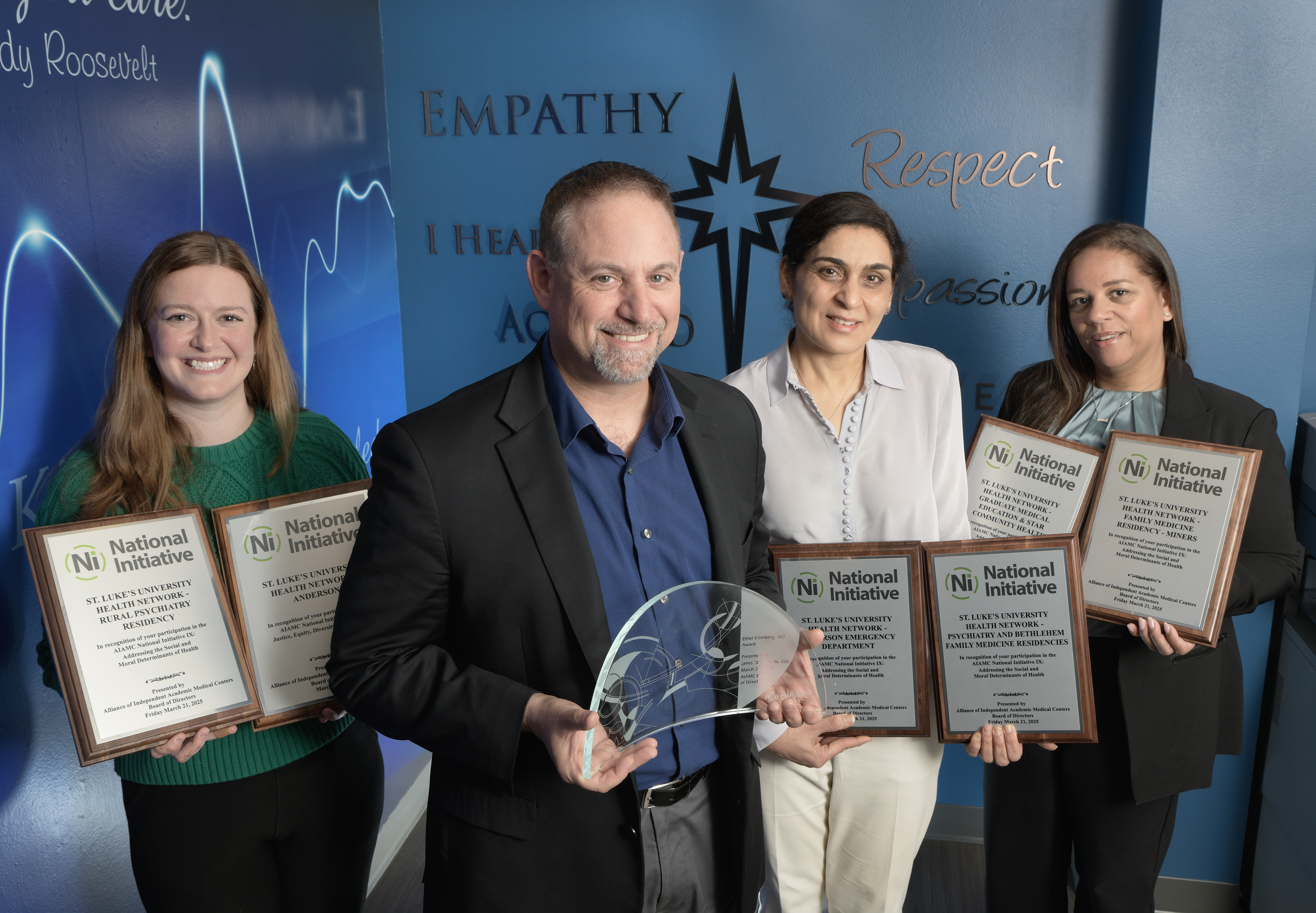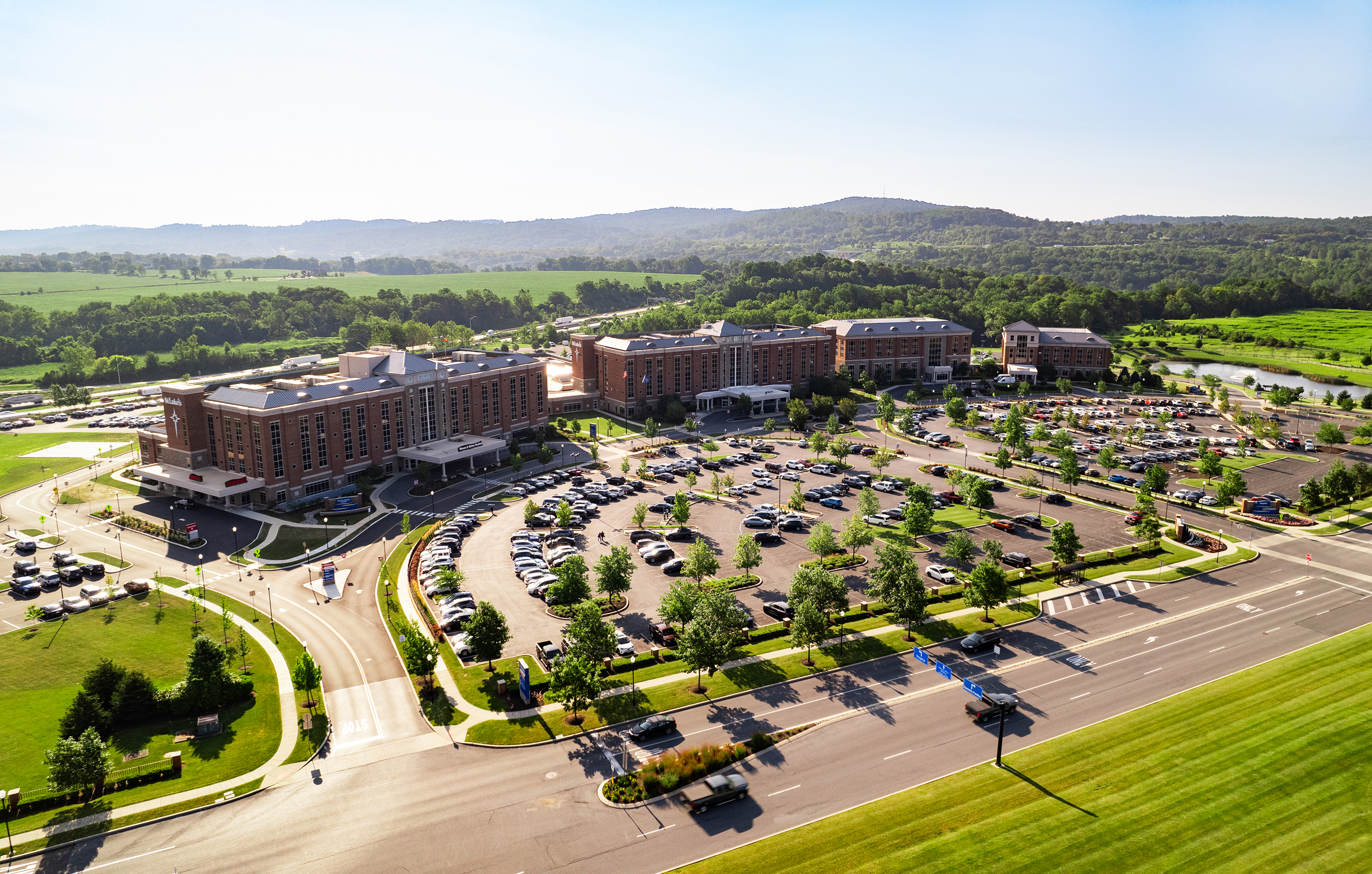Colorectal Screening Beginning at Age 45
March 07, 2022
St. Luke's gastroenterologists encourage routine colorectal cancer screening beginning at age 45 or even earlier if you have a close relative diagnosed with colorectal cancer at a young age.
In May 2021, the U.S. Preventative Services Task Force issued new recommendations that require health insurance companies to cover the cost of colorectal screening, including colonoscopy. The guidelines lowered the suggested age for the first colonoscopy by five years because of an increase in younger people diagnosed with colorectal cancer. The American Cancer Society says about 12% of colorectal cancer cases diagnosed are people under 50.
The third most common cancer, colorectal cancer is also the third leading cause of cancer deaths in the United States for both men and women, according to the Centers for Disease Control and Prevention (CDC).
St. Luke's gastroenterologist Shannon Tosounian, DO, said experts speculate the increase in young people diagnosed with colorectal cancer may be caused by today's more sedentary lifestyles and increased consumption of processed foods.
"Someone born in 1990 is estimated to have twice the risk of colon cancer than someone born in 1950 and a four-time increased risk of developing rectal cancer," Dr. Tosounian said. "That's a pretty staggering statistic."
The guidelines also suggest that first-degree relatives – children, siblings and parents – of someone diagnosed with colorectal cancer should begin screening 10 years earlier than their relative's age. For example, if your father was diagnosed with colorectal cancer at age 50, you should start screening at age 40.
Sarina Kapoor, MD, also of St. Luke's Gastroenterology, said colonoscopies today are easier than 10, or even five, years ago.
"It's important for people hesitant to get a colonoscopy to understand some of the huge scientific advancements we've made in the last couple of years," Dr. Kapoor said. "We try to avoid giving anybody those big seawater tasting four-liter gallon bowel preps."
St. Luke's gastroenterologist Shannon Tosounian, DO, added that rather than drinking all of the liquid the night before, patients can drink half in the evening and the remainder the morning of the colonoscopy, resulting in a better night's sleep. Pill preparations are also available. Besides the laxative, patients must only consume clear liquids the day before.
During a colonoscopy, the most comprehensive screening method, gastroenterologists use a long flexible tube equipped with a tiny camera to see inside the colon and remove small clumps of cells called polyps, which could develop into cancer. They also take samples of abnormal growths. A pathologist then examines them for the presence of cancer.
Rather than using air to open the colon, all St. Luke's facilities use carbon dioxide, which the patient passes with less discomfort.
Also, at St. Luke's, gastroenterologists use an innovative device called Endocuff Vision, which flattens the folds in the colon, enabling physicians to see and remove hidden polyps, Dr. Tosounian explained. Because of these innovations and its excellent physicians, St. Luke's exceeds national quality benchmarks related to colonoscopy. St. Luke's has much higher polyp detection rates and much lower complication rates than other hospitals nationally.
Less invasive, at-home options are also available; however, a positive test would require a colonoscopy to determine whether cancer is present, she explained.
To schedule a colonoscopy, contact St. Luke's Gastroenterology at 484-526-6545.
Read More NewsLatest News


April 10, 2025
National Recognition for SLUHN Graduate Medical Education

April 09, 2025
In Safe Hands Award

April 08, 2025